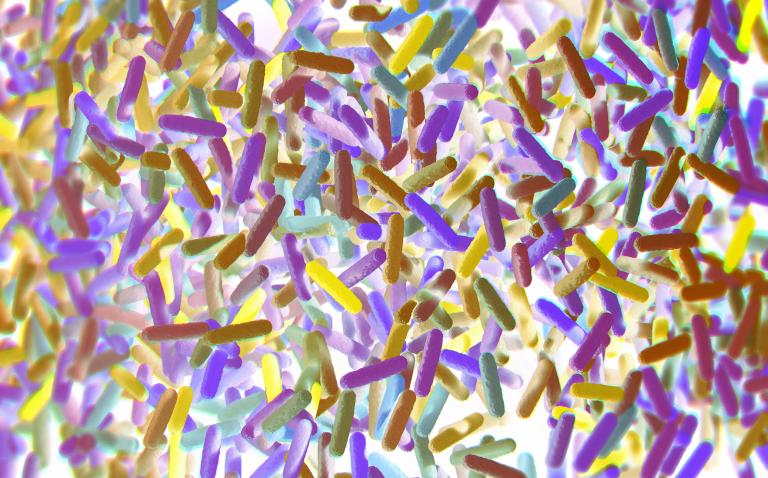An international research group from the Cluster of Excellence “Precision Medicine in Chronic Inflammation” in Kiel and Charité – Universitätsmedizin Berlin has uncovered a critical mechanism that controls immune reactions against microorganisms in the intestine. The results have been published in Nature Immunology.1
Led by Prof Dr Alexander Scheffold, the group as has uncovered a critical mechanism that establishes the balance between immune system and microbiota.
The researchers Dr Christian Neumann (Charité), Dr Sascha Rutz (Genentech, San Francisco), Prof Dr Axel Kallies (University of Melbourne and Walter and Eliza Hall Institute of Medical Research, Melbourne), and Prof Scheffold and colleagues studied molecular regulators of immune-microbiome interactions in mice. The team focused on regulatory T cells.
“We have identified a molecule, c-Maf, which is critical for the development and function of specific regulatory T cells in the gut,” explained Scheffold. C-Maf prevents the immune system from attacking the microbiota. “If this molecule is missing, the gut’s immune system overreacts and the microbiota composition changes considerably,” added first author Dr. Neumann of Charité’s Institute of Microbiology, Infectious Diseases and Immunology. This change in composition proved remarkably stable: When the researchers transferred the altered microbiota to mice with intact c-Maf-dependent regulatory T cells, they also developed an overreaction of the intestinal immune system.
“These results show that both the immune system and the microbiota mutually contribute to establishing and maintaining the balance in the gut,” emphasises Prof Scheffold. “This could explain how a microbial imbalance can contribute to chronic inflammatory bowel disease and why the treatment often fails“.
These findings could lead to new therapeutic approaches that, for example in the case of inflammatory bowel disease, aim to influence and harmonise both immune response and microbiota. In the future, the team would like to study how an established pathological interaction between intestinal bacteria and the immune system can be destabilised in patients and restored to its original state.
Reference
- Neumann C et al. c-Maf-dependent Treg cell control of intestinal TH17 cells and IgA establishes host-microbiota homeostasis. Nat Immunol 2019;Feb 18. doi: 10.1038/s41590-019-0316-2









